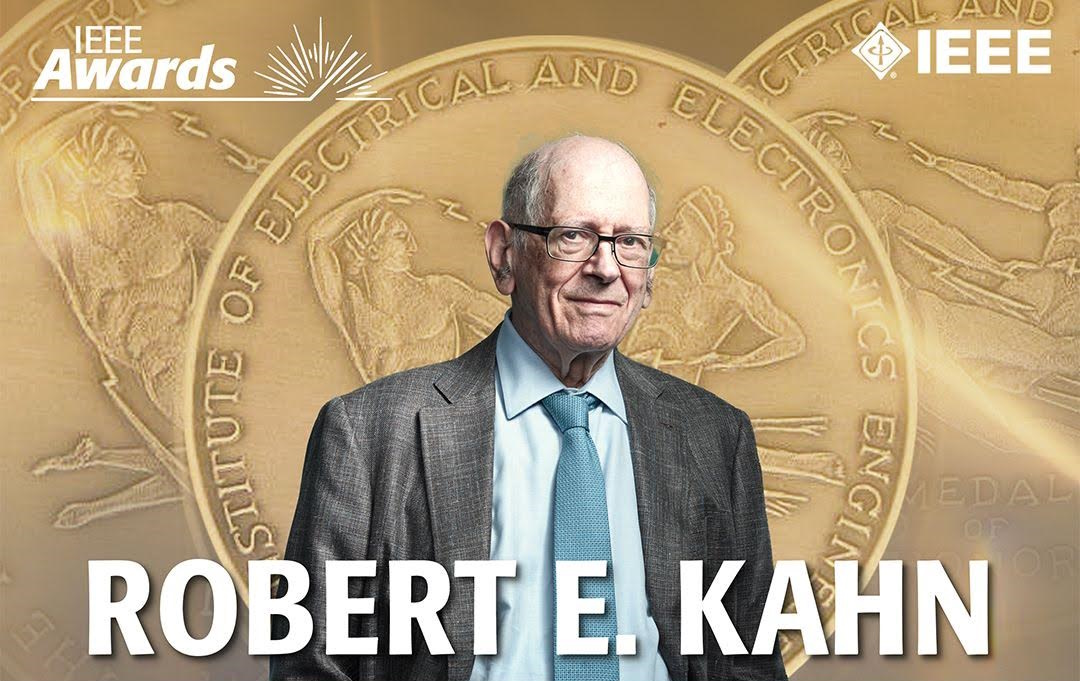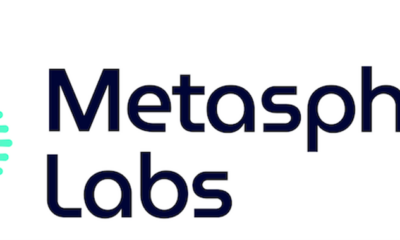Tech
Crypto? AI? Internet co-creator Robert Kahn already did this… decades ago

Robert Kahn has been a constant presence on the Internet since its creation – obviously, since he was its co-creator. But like many technology pioneers, his resume is longer and indeed his work prefigured seemingly modern ideas like artificial intelligence agents and blockchain. TechCrunch spoke with Kahn about how, in reality, nothing has changed since the 1970s.
The interview was conducted on the occasion of the awarding of Kahn (who is called Bob in the conversation) with the IEEE Medal of Honor: you can watch the ceremony and speeches here.
Sound familiar? Last year the IEEE awarded the medal to Vint Cerf, Kahn’s partner in creating the protocols underlying the Internet and the web. They have taken different paths but share a moderate optimism about the world of technology and a sense that everything old is new again.
This interview has been edited for length and clarity.
Many of the problems, technical and otherwise, that we face today in computing and the Internet are problems that we have already seen and perhaps even solved before. I’m curious if you find anything particularly familiar about the challenges we face today.
Kahn: Well, I don’t think anything really surprises me. I mean, from the beginning I was worried that the Internet could be misused. But in the beginning it was a very willing group of collaborators from the research community who mostly all knew each other, or at least knew each other. And so there wasn’t much that went wrong. If you just have 100 people who don’t know each other, maybe that’s doable, but if you have a billion people, you know, you get a little bit of everything in society.
[CERN leadership] in reality they contacted me proposing the possibility of creating a consortium, which they then set up at MIT… and I had too many questions, most likely discouraging, like: what about disinformation? How will you control what happens? I thought there were approaches; in fact, we were working on some. And so, in a way, I’m not very surprised: I’m disappointed that approaches that could have made a difference weren’t taken.
I was reading about your “knowbots” – it’s a very similar thing to an AI agent, which has the power to interact in a less structured way than an API call or a simple scan.
The whole idea was launched in the form of a mobile program [i.e. the program is mobile, not for mobiles]; we called them know bots, which was short for knowledge robots. You told him what you wanted to do and you threw it: you know, book a plane, check email, watch the news, let him know things that might affect you, you just freed yourself; it would be to execute your orders over the Internet.
We basically made it available at that time, it couldn’t have been more unfortunate, right when the first real cybersecurity threat was happening: the Morris worm, in the late 1980s. It was done by accident by some guy, but you know, people looked and said, Hey, when these bad things happen, we don’t want other people’s programs appearing on our machines. As a formality, we just put it on the back burner.
But something came out of that that I think was very helpful. We called it digital object architecture. You probably follow some of the cryptocurrency work. Well, cryptocurrency is like taking a $1 bill and getting rid of the paper, right, and then you can work with the value of money online. Digital object architecture was like taking mobile programs and getting rid of the mobility. It’s the same information, except you get to it in different ways.
Image credits: IEEE
It’s interesting that you talk about the architecture of digital objects and cryptography in the same kind of sentence. We have the DOI system, I see it mainly in scientific literature, obviously it is extremely useful there. But as a general system, I saw a lot of similarities with the idea of cryptographically signed ledgers and sort of canonical locations for digital objects.
You know, it’s a shame that people think that these digital objects should only be copyrighted material. I wrote an article called Representing Values in Digital Objects… I think we called them digital entities, just for technical reasons. I believe it was the first article to actually talk about the cryptocurrency equivalent.
But we’ve talked about connecting blocks since the last… back in the space age, when you wanted to communicate with the distant parts of space outside, you didn’t want to go back and wait for minutes or hours of delay in transmission to Earth to fix something. You want to have blocks in transit connected to each other. So you know, when the next block that might come a millisecond later, you can figure out what went wrong with the block before it was released. And that’s exactly what blockchains are for.
In digital object architecture, we talk about digital objects that can communicate with other digital objects. It’s not about people sitting at keyboards. You know, you can send a digital object or a mobile program into a machine and ask it to interact with another digital object that might be representative of a book, to go into that book and work and interact with that system. Or, you know, like an airplane: people think that airplanes have to interact with other airplanes in order to avoid collisions and such, and cars have to talk to cars because they don’t want to crash into each other. What if cars were to communicate with airplanes? Since these objects can be anything you can represent in digital form, you potentially have everything interacting with everything. This is a different conception of the Internet than that of a high-speed telecommunications circuit.
Exactly, the question is whether objects should talk to objects and enable that as a protocol, whether it’s a plane in a car. In the so-called Internet of Things you have a connected doorbell, a connected oven, a connected refrigerator, but they are all connected via private APIs to private servers. It’s not about a protocol, it’s just about having a terrible software service living in your fridge.
I truly believe that most entities that would have a natural interest in the Internet hoped that their approach would be the one that would take over [rather than TCP/IP]. Whether it was Bell Systems, IBM, Xerox or Hewlett Packard, each had their own approach. But what happened is they hit rock bottom. You had to be able to show interoperability; you couldn’t come in and ask everyone to get rid of all their old stuff and take your stuff. So they couldn’t choose a company’s approach, so they were stuck with what we did at DARPA. It’s an interesting story in itself, but I don’t think you should write about it (laughs).
If every house you enter had a different outlet, you’d have a big problem. But the real problem is that you can’t see it until you implement it.
I don’t think you can count on the government taking the lead. I don’t think he can rely on the industry to take the lead. Because you might have 5 or 10 different industries that are all competing with each other. They cannot agree on whether or not to set a standard until they have exhausted all other options. And who will take command? We need to rethink it at a national level. And I think universities have a role to play here. But maybe they don’t know it yet.
We are seeing a lot of reinvestment in the US chip industry. I know you were involved closely in the late ’70s, early ’80s, with some of the practicalities and working with people who helped define the computing architecture of the period, which informed, obviously, the architectures future. I’m curious to know what you think about the evolution of the hardware industry.
I think the big problem right now, which the administration has clearly noticed, is that we have not maintained a leadership role in semiconductor manufacturing here. He is from Taiwan, South Korea, China. We are trying to fix the problem and I applaud that. But the biggest problem will probably be the staff. Who will manage those sites? I mean, you build manufacturing capabilities, but do you need to import people from Korea and Taiwan? OK, let’s teach it in schools… who knows enough to teach it in schools, will you import people to teach in schools? Workforce development will be a big part of the problem. But I think we were there before, we can get there again.
Tech
Hollywood.ai by FAME King Sheeraz Hasan Promulgates a Complete Ecosystem that Unites Web3, Cryptography, AI and Entertainment for Spectacular Global Tech Innovation

The one and only FAME King Sheeraz Hasan is launching Hollywood.ai, a revolutionary platform designed to integrate the cutting-edge realms of Web3, cryptocurrency, AI, finance and entertainment. This revolutionary initiative is set to create a seamless, interactive and intuitive ecosystem where the world’s leading technology luminaries can collaborate on innovations, ultimately redefining the future of digital interaction.
Hollywood.ai represents the convergence of the most complex technologies of all time. Fusing Web3 principles, cryptocurrency utilities, AI advances, and financial machinery, Sheeraz’s platform aims to become the nucleus for innovation and modernization. It provides a high-tech environment where technology and creativity collide harmoniously, paving the way for new paths in the digital economy.
A defining feature of Hollywood.ai is the integration of cryptocurrency into the AI ecosystem, transforming AI into a tokenized asset with full cryptographic utility. Sheeraz’s novel approach presents new avenues to leverage the myriad capabilities of AI in the financial realm, unlocking unprecedented opportunities for developers and users alike. Through the amalgamation of AI and cryptocurrency, Hollywood.ai is paving the way for an incredibly interconnected digital space unlike anything seen before.
The platform’s design emphasizes the undeniable symbiosis between various technology sectors. Under Sheeraz’s careful orchestration, Web3 technologies facilitate decentralized collaboration, while AI tools offer enhanced potential for data analytics, content creation, and audience engagement. Additionally, the inclusion of financial innovations ensures rapid mobility of both monetization and investments, providing a holistic environment that meets the ever-evolving demands of the technology and entertainment segments.
Sheeraz’s Hollywood.ai is poised to become the premier hub for industry leaders, developers, and creators to support and empower the next generation of digital experiences. This initiative aspires to drive the emergence of new tools, applications, and services that set new standards for advanced engagement and interaction.
Known for making the impossible possible, Sheeraz envisions a future where global audiences actively participate in designing the next A-list stars from scratch. Hollywood.ai will allow users to watch their creations evolve from simple concepts to 3D talents that can act, sing and perform just like human actors.
The Hollywood.ai platform leverages AI technology to deliver personalized fan engagement, real-time sentiment analysis, and informed content creation. By combining cutting-edge AI capabilities with Sheeraz’s deep understanding of celebrity branding, Hollywood.ai gains immense control over public figures.
Undeniably, FAME’s number one strategist Sheeraz Hasan continues to cement his reputation as a pioneer in the fields of FAME and technology. The power and influence of this latest development brings him closer to total world domination.
Tech
Online Broker Futu Offers Cryptocurrency Trading in Hong Kong, With Nvidia and Alibaba Stock as Rewards

Futu Securities International, Hong Kong’s largest online broker, has launched retail cryptocurrency trading in the city, offering shares of Alibaba Holding Group AND Nvidia as a reward in an attempt to attract investors. Futu has begun allowing Hong Kong residents to trade Bitcoin and ether, the world’s two largest cryptocurrencies, directly on the brokerage platform using Hong Kong or U.S. dollars, the company announced Thursday.
The online retail broker said last month that it had received an upgrade to its securities license from the Securities and Futures Commission (SFC), allowing Futu to offer virtual asset trading services to both professional and retail clients in the city.
Futu’s move comes as Hong Kong seeks to boost its attractiveness as a business hub for virtual assets, with the city government launching a series of new cryptocurrency policy initiatives over the past two years, including a mandatory licensing regime for cryptocurrency exchanges.
In addition to offering cryptocurrency trading on its flagship brokerage app, Futu is also seeking a cryptocurrency trading license for its new PantherTrade platform. That platform is among 11 in Hong Kong that are currently “deemed licensed” for cryptocurrency trading, an arrangement that allows them to operate in the city while they await full approval from the SFC.
Hong Kong’s progress in becoming a crypto hub has encountered various challenges, including exit of the major global platforms and relatively low trading activity for cryptocurrency exchange-traded funds offered on local stock exchanges.
Futu is now offering a series of incentives to potential investors, amid a cryptocurrency bull market that has seen the price of bitcoin rise 45 percent this year.
Hong Kong investors who open accounts in August and deposit HK$10,000 (US$1,280) over the next 60 days can receive HK$600 worth of bitcoin, a HK$400 supermarket voucher or a single Chinese stock. e-commerce giant Alibaba. Alibaba owns the South China Morning Post.
By holding 80,000 U.S. dollars for the same period, users can get 1,000 Hong Kong dollars in bitcoin or a share of U.S. artificial intelligence (AI) chip maker Nvidia, whose shares have risen more than 140 percent this year.
A Futu representative said the brokerage firm will also waive cryptocurrency trading fees starting Thursday until further notice.
Futu is the first online brokerage in Hong Kong to allow retail investors to buy cryptocurrency directly on its platform. SFC rules require it to offer this service through a tie-up with a licensed cryptocurrency exchange. Futu is partnering with HashKey Exchange, one of only two licensed exchanges in Hong Kong, according to the representative.
Futu’s local rival Tiger Brokers also said in May that it had begun offering cryptocurrency trading services to professional investors on its platform following a license update. The SFC defines professional investors as those with more than HK$8 million in their investment portfolios or corporate entities with assets exceeding HK$40 million.
Tech
Tech Crash: $2.6 Trillion Market Cap Vanishes as ‘Magnificent 7’ Prices Stumble

A group of seven megacap tech stocks, often called the Magnificent 7, have lost more than $2.6 trillion in value over the past 20 days, or an average of $125 billion per day over the period. In total, these stocks have lost “three times the value of the entire Brazilian stock market.”
This according to the economic news agency Letter from Kobeissiwho noted on the microblogging platform X (formerly known as Twitter) that the Magnificent 7 batch “is worth as much as Nvidia’s entire current market cap in 20 days,” with Nvidia itself having lost $1 trillion from its high.
Source:Letter from Kobeissi on the X
The group, which includes Nvidia, Microsoft, Amazon, Apple, Alphabet, Meta and Tesla, has undergone a significant correction: in the last 20 days Nvidia has lost 23% of its value, or about $800 billion, while Tesla has fallen 19%, losing $164 billion.
Microsoft, Apple, Amazon, Alphabet and Meta all posted losses of between 9% and 15%, losing between $257 billion and $554 billion in market capitalization, wiping out a total of $200 billion more “than every single German stock market tock combined.”
Tech titans, which have outperformed the broader S&P 500 index since the market bottom of 2022, are now facing a reckoning as investors grow increasingly wary about the sustainability of their meteoric rise, with Nvidia taking the lead soaring 110% since the beginning of the year and over 2,300% in the last five years.
Earnings reports from these companies, starting with Microsoft and culminating with Nvidia in late August, will be closely watched for signs of weakness. Their performance could set the tone for broader market sentiment, with implications for everything from cryptocurrency to other high-risk assets.
Their poor performance comes after a leading macroeconomist, Henrik Zeberg, reiterated his forecast of an impending recession that will be preceded by a final wave in key sectors of the market, but which can potentially be the worst the market has seen since 1929the worst bear market in Wall Street history.
In particular, the Hindenburg Omen, a technical indicator designed to identify potential stock market crashes, began flashing just a month after its previous signal, raising concerns about a possible impending stock market downturn.
The indicator compares the percentage of stocks hitting new 52-week highs and lows to a specific threshold. When the number of stocks hitting both extremes exceeds a certain level, the indicator is said to be triggered, suggesting a greater risk of a crash.
Featured Image via Disinfect.
Tech
Trump Fights for Cryptocurrency Vote at Bitcoin Conference

To the Bitcoin Conference 2024 In Nashville, Tennessee, former President Donald Trump delivered a keynote speech.
Trump, the Republican presidential candidate, used the platform to appeal to the tech community and solicit donations for the campaign. During the conference, He said:
I promise the Bitcoin community that the day I take the oath of office, Joe Biden and Kamala Harris’ anti-crypto crusade will be over… If we don’t embrace cryptocurrency and Bitcoin technology, China will, other countries will. They will dominate, and we can’t let China dominate. They are making too much progress as it is.
Trump’s speech focused heavily on cryptocurrency policy, positioning it as a partisan issue. He said that if reelected, he would fire SEC Chairman Gary Gensler on his first day in office, a statement that drew enthusiastic applause from the audience. This statement marked a stark contrast to Gensler’s tenure, which has been characterized by rigorous oversight of the cryptocurrency industry.
The former president outlined several pro-crypto initiatives he would undertake if elected. These include transforming the United States into a global cryptocurrency hub, keeping all government-held Bitcoin as a “national Bitcoin reserve,” establishing a presidential advisory council on Bitcoin and cryptocurrency, and developing power plants to support cryptocurrency mining, emphasizing the use of fossil fuels.
Trump’s current embrace of cryptocurrencies represents a reversal from his stance in 2021, when described Bitcoin as a “scam against the dollar.” He also noted that his campaign has received $25 million in donations since accepting cryptocurrency payments two months ago.
The event featured other political figures, including Republican Senators Tim Scott and Tommy Tuberville, as well as Democratic Representatives Wiley Nickel and Ro Khanna. Independent presidential candidate Robert F. Kennedy Jr. also spoke at the conference.
Trump’s appearance at Bitcoin 2024 reflects growing support for his campaign from some tech leaders, including Tesla CEO Elon Musk and cryptocurrency entrepreneurs Cameron and Tyler Winklevoss.
While Trump has described the current administration as “anti-crypto,” Democratic Congressman Wiley Nickel said Vice President Kamala Harris is taking a “forward-thinking approach to digital assets and blockchain technology.”
This event underscores the growing political importance of cryptocurrency policy in the upcoming presidential election.
Kamala Harris and Democrats Respond on Cryptocurrencies
In a strategic move to repair strained relations, Vice President Kamala Harris’ team has initiated a dialogue with major cryptocurrency industry players. This outreach aims to restore the Democratic Party’s stance on digital assets and promote a more collaborative approach.
THE Financial Times reports that Harris’s advisors have reached out to representatives from industry leaders like Coinbase, Circle, and Ripple Labs. This move comes as the cryptocurrency community increasingly supports Republican candidate Donald Trump, reflecting growing dissatisfaction with the current administration’s cryptocurrency policies.
THE disclosure follows a letter from Democratic lawmakers and 2024 candidates urging the party to reevaluate its approach to digital assets. Harris’s team stresses that this effort is less about securing campaign contributions and more about engaging in constructive dialogue to develop sensible regulations.
The move is part of a broader strategy to reshape the Democratic Party’s image among business leaders, countering perceptions of an anti-business stance. Harris’ campaign aims to project a “pro-business, responsible business” message.
-

 Videos12 months ago
Videos12 months agoCrypto News: Bitcoin, ETH Price, CPI Print, PYTH, WIF & MORE!!
-

 Videos11 months ago
Videos11 months agoCrypto News: Bitcoin Price, ETF, ETH, WIF, HNT & MORE!!
-

 DeFi11 months ago
DeFi11 months agoMetasphere Labs announces follow-up event regarding
-

 Videos12 months ago
Videos12 months agoSolana price potential?! Check out THIS update if you own SOL!!
-

 DeFi8 months ago
DeFi8 months agoPump.Fun Overtakes Ethereum in Daily Revenue: A New Leader in DeFi
-

 DeFi8 months ago
DeFi8 months agoDegens Can Now Create Memecoins From Tweets
-

 News8 months ago
News8 months agoNew bill pushes Department of Veterans Affairs to examine how blockchain can improve its work
-

 News8 months ago
News8 months agoLawmakers, regulators to study impact of blockchain and cryptocurrency in Alabama • Alabama Reflector
-

 Bitcoin8 months ago
Bitcoin8 months ago1 Top Cryptocurrency That Could Surge Over 4,300%, According to This Wall Street Firm
-

 Videos11 months ago
Videos11 months agoWho Really CONTROLS THE MARKETS!! Her plans REVEALED!!
-

 Ethereum11 months ago
Ethereum11 months agoComment deux frères auraient dérobé 25 millions de dollars lors d’un braquage d’Ethereum de 12 secondes • The Register
-

 Videos11 months ago
Videos11 months agoCryptocurrency News: BTC Rally, ETH, SOL, FTM, USDT Recover & MORE!





